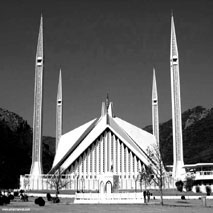Takeaways from doleful tragedy of Karbala
THE lachrymose event of Karbala is certainly an event that pains every human heart.
It leaves one in an inexpressible dolor when he listens or reads about the heart-wrenching throes that Imam Hussain (RA) along with his small contingent of dedicated and loyal soldiers underwent at the plains of Karbala.
Despite being a dolorous story, packed with many traumatizing events, Karbala also posits myriad lessons for humanity to learn and try to entrench them in our life in order to build a society premised on the refined principles and ethos that Imam Hussen (R.A) fought for in the field of Karbala.
The battle of Karbala epitomizes a fight between virtue and vice, veracity and falsehood and injustice and oppression.
Imam Hussain announced: “Don’t you see that truth has been replaced by falsehood? We must be prepared to sacrifice everything that is precious in support of Truth!” Truth is the essence of Islam and fortifies the values emphasized in the Holy Qur’an.
Hadrat Ali Akbar asked his father (Imam Hussein): “Are we not on the right path?” The Imam replied in the affirmative. Hadrat Ali Akbar then said: “Then, it makes no difference if death comes to us or if we approach death.”
The event of Karbala, indubitably, sharpens and broadens our understanding about death. Every soul has to taste the death; it is written and no one can escape it.
Imam Hussain (RA) said: “Death is an adornment of life as a necklace is an adornment of a beautiful woman.” He further remarked “dying with dignity is greater than living the life of humiliation.
In his farewell address to relatives in Madina, the Imam said: “Whoever joins us will be martyred; those who remain behind will miss the victory.”One of the beautiful lessons of Karbala is to remain loyal to your friend under all circumstances.
If one’s friends stand by him in times of prosperity but leave him when adversities and difficulties strike, it is clear that their friendship is not true. On the day of Ashura, Imam Hussain told his companions that Yazidi forces were thirsty of my blood. He did not want to jeopardize their lives so whoever likes to leave, he may.
He further ensured them that their parting away will not in any way annoy him and he would continue praying for them and even would recommend them to his grand-father (the prophet of ALLAH) for Jannah.
Despite such humongous assurance, not even a single man left him. This very attitude of his small band of force, verily, exemplifies fidelity, loyalty and true friendship.
Another key lesson that we can learn from the event of Karbala is that of “Ethaar” which means altruism; thinking beyond one’s own self. On the day of Ashura, the actions of Hadrat Abbas (RA), brother of Imam Hussain (RA), illustrated a perfect example of Ethaar.
Hadrat Abbas (RA) fought bravely to gain access to the water of Euphrates and when he finally succeeded in his aim, He gave no consideration to his own thirst but strove instead to bring water to the tents of Sadaat (the holy household) for the women and children.
Moreover, patience was also given paramount consideration by Hussaini forces and was upheld under all circumstances.
They never bemoaned for the afflictions and agonies that they suffered on the scorching land of Karbala. Imam Hussain, the paragon of patience and perseverance was elated to “remain patient” in hardship and endurance.
His patience wasn’t out of weakness or helplessness, but it was a demonstration of his steadfastness and bravery. Those who saw the Imam on the day of Ashura reported. “We had never seen a man remaining as composed as Imam Hussain (RA), whereas his relatives and children were ruthlessly decapitated before his eyes.”
Additionally, it was also reinforced in the battle of Karbala that it is never too late to repent. Hurr al-Riyahi, the first commander to surround Imam Hussain’s troops and prevent their access to the water of Euphrates, manifested a marvellous illustration of repentance.
Regretting his action, he asked Imam Hussain if his repentance would be accepted. The Imam told him that it is never too late to repent. Hurr joined Imam Hussain’s camp and was honoured by being one of the first martyrs.Yet another paramount takeaway of the gloomy incident of Karbala is that never accept humiliation.
Hence, in one of his speeches, Imam Hussain (RA) remarked that the authorities in Kufa had given him only two options: humiliation or death and he preferred death over humiliation.
However, while we, the Muslims engage in polemic on how to mark this epic tragedy of Karbala; When many of us fail to instil the lessons of Karbala in the minds of our young generation and ourselves; those belonging to other faiths take inspiration from Hussain (RA).
Mahatma Gandhi declared that ‘I learnt from Hussain (RA) how to achieve victory while being oppressed.’ Charles Dickens honoured Hussain by saying that it stands for reason that Hussain sacrificed purely for Islam.’
The events of Karbala also amazed Thomas Carlyle as he admits ‘The victory of Hussain, despite in minority, marvels me.’
Inter alia, after spending 20 years in prison, when Nelson Mandela was on the verge of surrender and was about to sign terms and conditions, propounded to him by the then government, he suddenly remembered Imam Hussain and the battle of Karbala and said ‘Hussain gave me strength to stand for right of freedom and liberation and I did it.’
May Allah, the sublime, enable us to entrench in our life, the phenomenal and unparalleled teachings of Karbala.
— The writer is contributing columnist, based in Quetta Balochistan.










